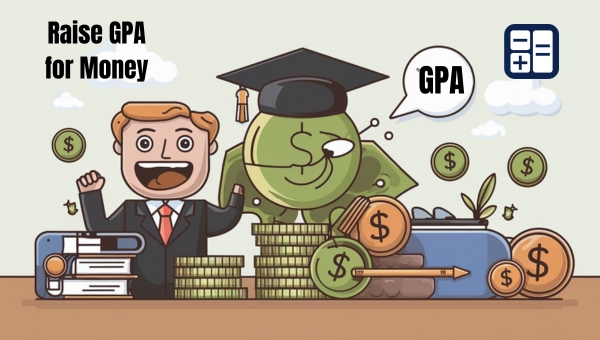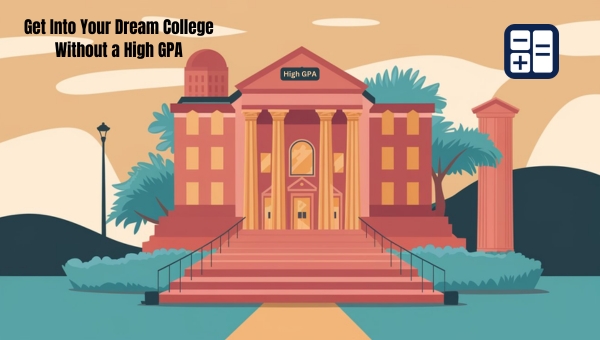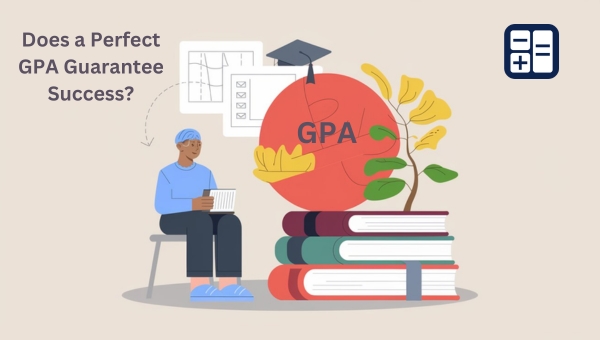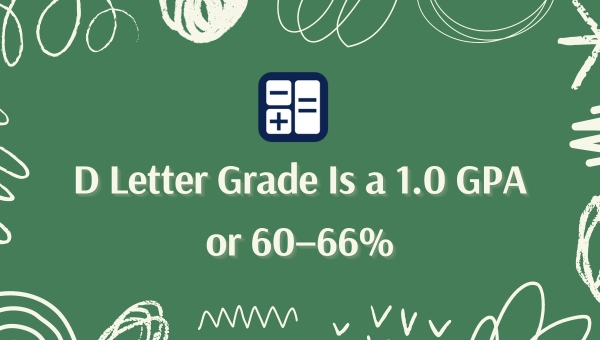2.7 GPA Equals to 80-82% Percentile Grade or B
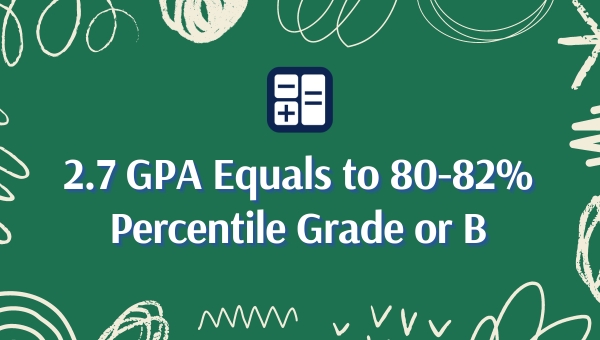
You might wonder what a 2.7 GPA means for your academic journey. It translates to an 80-82% percentile grade or a B-, suggesting you’re performing slightly below the national high school average. This GPA shows you can handle coursework but also indicates there’s room for improvement.
How does this affect your chances in more competitive academic environments? What strategies can you employ to boost your GPA quickly and effectively? Let’s explore these questions and uncover actionable steps to enhance your academic standing.
What is a 2.7 GPA?
A 2.7 GPA is a grade point average that falls below the national high school average, representing a B- on the letter grade scale. This means your performance is slightly above average, but there’s room for improvement. A 2.7 GPA translates roughly to an 80-82% percentile grade.
You might wonder how this compares across different contexts. Colleges and employers often consider the GPA as a quick snapshot of your academic abilities. While a 2.7 GPA shows you can handle coursework, it also suggests that you might face challenges in more demanding academic environments. However, it’s not the end of the road.
Improving your GPA requires consistent effort. Focus on understanding your weaker subjects and seek extra help if needed.
Time management and organizational skills can make a significant difference. Don’t hesitate to use resources like tutoring centers or study groups.
What does a 2.7 GPA mean for high school students?
With a 2.7 GPA, you’ll need to carefully think about your college options. Safety schools might be more attainable, while target schools could still be within reach if you strengthen other parts of your application. Dream schools may be a stretch, but don’t let that stop you from trying.
Safety Schools
For high school students, a 2.7 GPA can feel like a significant hurdle when considering college options. However, focusing on safety in schools can provide you with a range of opportunities to continue your education.
Safety schools are institutions where your academic credentials exceed the school’s average admission requirements, giving you a higher chance of acceptance.
Here are a few factors to consider when identifying your safety schools:
- Acceptance Rates: Look for schools with higher acceptance rates, often above 70%, to increase your chances.
- Average GPAs: Target schools where the average GPA of admitted students is around or below your current GPA.
- Supportive Environments: Consider institutions that offer robust academic support services to help you succeed.
- Financial Aid: Check if the school provides financial aid packages that can make attending more feasible.
Don’t be discouraged by your GPA. Safety schools often have a range of programs and resources designed to help students like you thrive.
Target Schools
Navigating the college admissions process with a 2.7 GPA might seem challenging, but identifying target schools can help you find institutions that match your academic profile.
These schools are neither too easy nor too hard to get into, offering you a realistic chance of acceptance. To pinpoint your target schools, consider factors beyond just GPA.
- School’s Average GPA: Look for colleges where the average admitted GPA closely aligns with yours.
- Program Strength: Research specific programs or majors where you excel and the college has a strong reputation.
- Extracurricular Opportunities: Find schools that value diverse achievements, including sports, arts, and volunteer work, which can bolster your application.
- Location and Size: Consider the geographic location and campus size that fit your preferences and lifestyle.
Dream Schools
Dream schools often represent the pinnacle of a student’s academic aspirations, but what does a 2.7 GPA mean for high school students eyeing these prestigious institutions?
A 2.7 GPA, translating to roughly a B- or 80-82% percentile grade, can make the journey to top-tier universities more challenging. However, it doesn’t mean your dreams are out of reach.
Consider these factors to strengthen your application:
- Extracurricular Activities: Demonstrate leadership skills, commitment, and passion through clubs, sports, or volunteer work.
- Strong Personal Statement: Write a compelling essay that showcases your unique story, resilience, and growth.
- Letters of Recommendation: Secure glowing endorsements from teachers or mentors who can vouch for your character and potential.
- Standardized Test Scores: High SAT or ACT scores can offset a lower GPA, emphasizing your academic capabilities.
Proven Tips to Get a 2.7 GPA
To achieve a 2.7 GPA, you need to master time management techniques and create a solid study schedule.
Make good use of campus resources and adopt effective note-taking methods.
Don’t hesitate to seek academic support when needed to stay on track.
Time Management Techniques
Achieving a 2.7 GPA requires effective time management techniques that can help you stay organized and focused. First, prioritize your tasks by listing everything you need to do and ranking them by importance.
Use a planner or digital calendar to schedule your study sessions, assignments, and personal activities. This helps you see your week at a glance and ensures you’re not overcommitting.
Next, break down larger tasks into smaller, manageable chunks. Tackling a big project can be overwhelming, but smaller tasks feel more achievable and keep you motivated. For example, if you have a research paper due, break it down into research, outline, writing, and revising stages.
Set specific goals for each study session. Instead of just saying you’ll study, decide what you’ll accomplish, like reading two chapters or solving ten math problems. This gives you a clear target and a sense of accomplishment.
Don’t forget to take regular breaks to avoid burnout. Use techniques like the Pomodoro Technique, where you work for 25 minutes and then take a 5-minute break. This keeps your mind fresh and focused.
Lastly, minimize distractions. Find a quiet study space, turn off notifications, and let friends and family know your study times. This helps you stay on track and make the most of your study sessions.
Study Schedule Strategies
Building on effective time management techniques, and implementing a strategic study schedule is equally important for achieving a 2.7 GPA. Start by identifying your most challenging subjects and allocate more study time to those areas.
Prioritize tasks by using a planner or digital calendar to block out specific times for studying each subject. Consistency is key, so establish a routine and stick to it.
Break study sessions into manageable chunks, such as 25-30 minutes of focused work followed by a 5-minute break. This method, known as the Pomodoro Technique, can enhance concentration and reduce burnout.
Review your notes regularly to reinforce learning and identify gaps in your understanding. Don’t forget to include time for assignments and projects in your schedule.
Begin working on them well before the deadline to avoid last-minute stress. Group similar tasks together to maintain a smooth workflow and minimize context-switching.
Incorporate review sessions before exams to ensure you’re well-prepared. Use practice tests to gauge your knowledge and adjust your study plan accordingly.
Utilizing Campus Resources
Accessing the wealth of resources available on campus can significantly boost your chances of achieving a 2.7 GPA. Make full use of the academic support centers your college offers. These centers often provide tutoring services, study groups, and workshops that can clarify difficult concepts and reinforce your learning.
Don’t hesitate to visit your professors during their office hours. They can offer personalized guidance, answer questions you might have, and provide insights that you won’t get from lectures alone. Building a rapport with your professors can also make it easier to seek help when you’re struggling.
Join or form study groups with classmates. Collaborative learning can help you understand different perspectives and fill in knowledge gaps. Your peers can explain topics in ways that make more sense to you, and you can do the same for them.
Additionally, take advantage of the library’s resources. It’s more than just a place to study; libraries often have research materials, databases, and sometimes even writing centers that can help you polish your assignments.
Effective Note-Taking Methods
Effective note-taking methods can make a significant difference in your academic performance and help you secure that 2.7 GPA. Start by staying organized. Use a notebook or digital tool dedicated to each class. This ensures your notes are easy to find and review.
Active listening is crucial. Focus on understanding the material as it’s presented and jot down key points rather than trying to write everything verbatim. Use shorthand symbols and abbreviations to keep up with the pace of the lecture.
Structured note-taking systems like the Cornell Method can also be highly effective. Divide your paper into sections for main ideas, details, and summary. This layout helps you quickly review and reinforce your understanding later.
Don’t forget to review your notes regularly. Spend a few minutes after each class going over what you wrote. This reinforces the material and helps you identify any gaps in your understanding early on.
Lastly, consider using visual aids. Diagrams, charts, and mind maps can make complex information more digestible and memorable.
Seeking Academic Support
Your path to achieving a 2.7 GPA can be greatly aided by seeking academic support. First, don’t hesitate to reach out to your professors during their office hours. They can provide personalized insights that can help clarify complex concepts and improve your understanding.
Additionally, talk to your academic advisor. They can guide you on course selections and study strategies tailored to your strengths and weaknesses.
Another key resource is your school’s tutoring center. Tutors can offer one-on-one or group sessions that break down difficult topics, making them more manageable.
If your school offers peer mentoring programs, join one. Peer mentors have been in your shoes and can share valuable tips and experiences that helped them succeed.
Form study groups with classmates. Collaborative learning can provide diverse perspectives and enhance your grasp of the material.
Use online resources like Khan Academy or Coursera for supplementary learning, especially in subjects where you need extra help.
Lastly, don’t overlook the importance of managing stress. Utilize campus counseling services if you’re feeling overwhelmed.
Balancing academics with mental well-being is crucial for sustained success. By leveraging these support systems, you’ll be better equipped to reach and maintain a 2.7 GPA.
How to Raise Your GPA Fast?
Raising your GPA quickly requires a strategic approach and a solid commitment. First, evaluate where you stand academically. Identify which classes are dragging your GPA down and prioritize those. Reach out to your professors or TAs for guidance—don’t hesitate to ask for extra help or clarification on assignments.
Next, improve your study habits. Create a study schedule that allows specific times for each subject. Stick to it religiously. Use active learning techniques like summarizing information, teaching concepts to a friend, or making flashcards. These methods help retain information better than passive reading.
Don’t overlook the importance of attending all classes and participating actively. Engaging in discussions can boost your understanding and might positively influence your participation grades.
Utilize campus resources like tutoring centers, study groups, and academic workshops. These can offer personalized assistance and foster a more supportive learning environment.
Lastly, manage your time efficiently. Prioritize your academic responsibilities over extracurricular activities, at least until you see an improvement. Break tasks into smaller, manageable chunks to avoid feeling overwhelmed.
Conclusion
So, a 2.7 GPA means you’re managing your coursework but still have room to grow. Don’t be discouraged—focus on your strengths and work on areas that need improvement. Use proven tips and strategies to boost your GPA quickly.
Remember, hard work and dedication can make a significant difference. Keep pushing forward, and you’ll see positive changes in your academic performance. You’ve got the potential to achieve great things!
